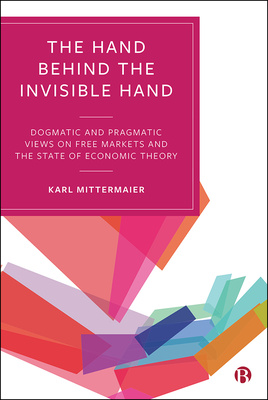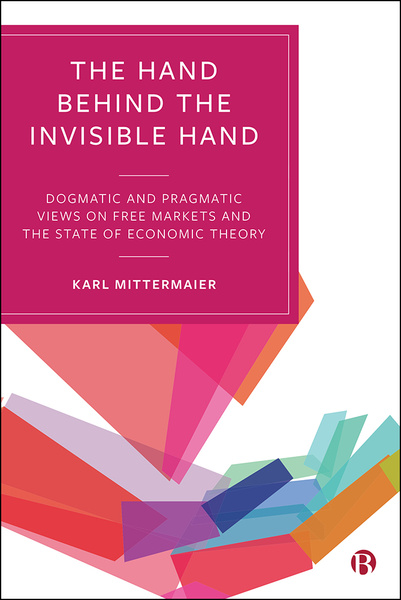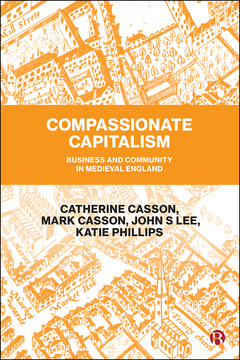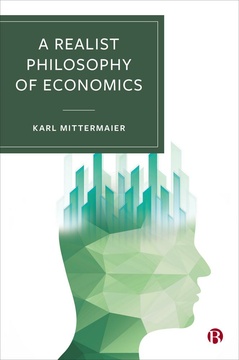The Hand Behind the Invisible Hand
Dogmatic and Pragmatic Views on Free Markets and the State of Economic Theory
By Karl Mittermaier
Published
Jul 22, 2020Page count
278 pagesISBN
978-1529209099Dimensions
234 x 156 mmImprint
Bristol University PressPublished
Jul 22, 2020Page count
278 pagesISBN
978-1529215793Imprint
Bristol University PressAvailable Open Access under CC-BY-NC-ND
Made famous by the Enlightenment thinker Adam Smith, the concept of an ‘invisible hand’ might be taken to imply that a government that governs least governs the best, from the viewpoint of society. Here an invisible hand appears to represent unfettered market forces.
Drawing from this much-contested notion, Mittermaier indicates why such a view represents only one side of the story and distinguishes between what he calls pragmatic and dogmatic free marketeers.
Published posthumously, with new contributions by Daniel Klein, Rod O’Donnell and Christopher Torr, this book outlines Mittermaier’s main thesis and his relevance for ongoing debates within economics, politics, sociology and philosophy.
“Karl Mittermaier’s careful, crisp and erudite analysis is an essential contribution to putting the myths of the invisible hand and equilibrium to rest. Both belong to the equivalent of the Ptolemaic universe and are obstacles to an economics of human (social) motives, values, relationships and practices.” Mark Addleson, George Mason University
"This is a magisterial work of immense erudition that will fascinate anyone interested in debates about free markets and the role of equilibrium theory." Jochen Runde, University of Cambridge
"Karl Mittermaier was decades ahead of his time. That he acknowledged the role institutions play in societal orders places him in good company among liberal thinkers; that he understood the significance of societal embeddedness in this context makes him a true pioneer." Nils Goldschmidt, University of Siegen
“As the shortcomings of the neoclassical school of economics became apparent, Mittermaier refused to follow the methodology of the Chicago school. His analysis of markets has proven to be a more fruitful basis for our current appreciation of Adam Smith’s work, as well as the role of economic policy in the modern world.” Michael Cohen, Deakin University
Karl Mittermaier (1938–2016) was affiliated with the University of the Witwatersrand, Johannesburg, for over thirty years until his retirement in 1998.
Foreword ~ Isabella Mittermaier
Mittermaier’s Modern Message ~ Christopher Torr
The Hand Behind the Invisible Hand ~ Karl Mittermaier
Karl Mittermaier’s Pursuit of Classical Liberal Coherence ~ Daniel B. Klein
Karl Mittermaier, a Philosopher-Economist with a Penetrating Intellect and Twinkling Eye ~ Rod O’Donnell















